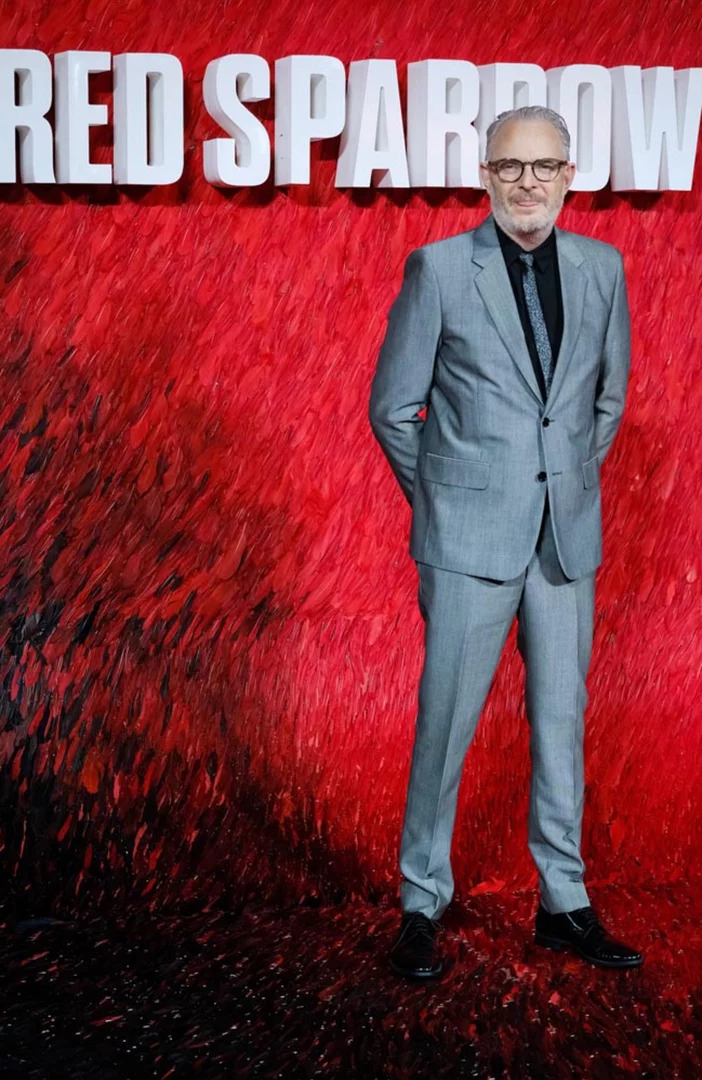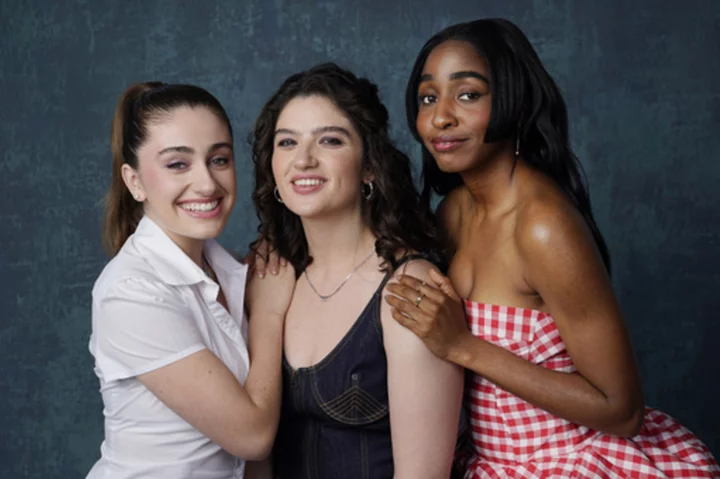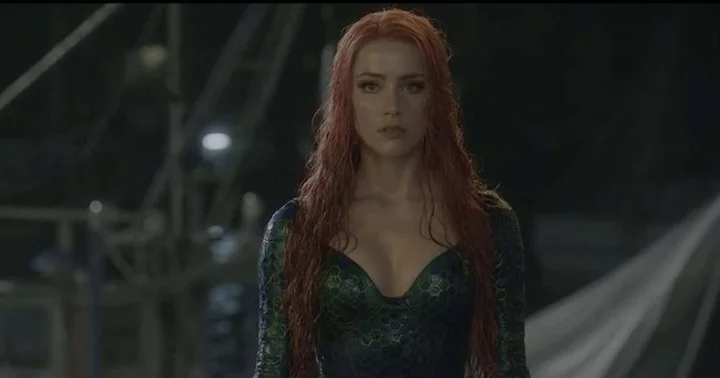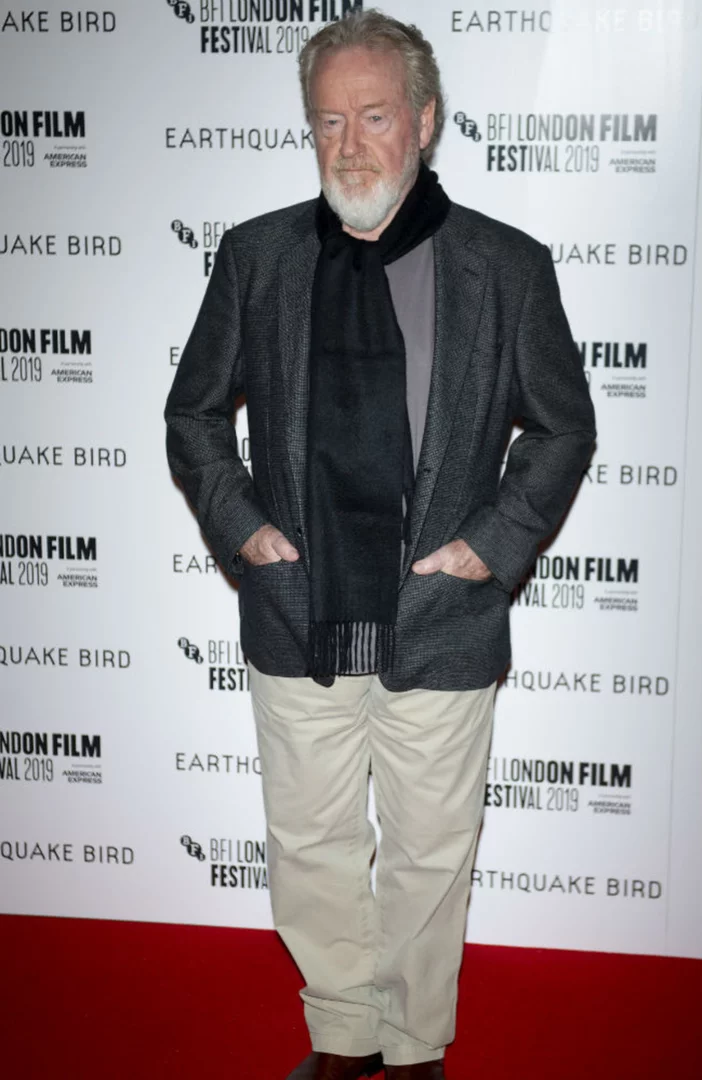CANNES, France (AP) — Very few are capable of capturing people's attention at the Cannes Film Festival like Liv Ullmann.
At 84, Ullmann is unabashed cinema royalty, and directors have flocked to greet her at this year's festival. Pedro Almodóvar sought her out at a luncheon. Todd Haynes endeavored to get word to her that his latest film, “May December,” is inspired by “Persona," the 1966 film that began her decade with Ingmar Bergman.
After meeting Ullmann, “The Zone of Interest” director Jonathan Glazer pressed his hand against his chest to catch his breath.
Ullmann has been coming to Cannes longer than she can remember. She's pretty sure there's a hotel suite somewhere named after her. But after being here in just about every capacity — with “Cries and Whispers" in 1973, her own “Faithless” in 2000, president of the jury in 2001 — she was in Cannes for a different reason. Dheeraj Akolkar’s documentary series, “Liv Ullmann: A Road Less Travelled,” played in the Cannes Classics section.
“I've never been here when someone else has made a movie about me or my life," says Ullmann. “That makes it so different and maybe a little shameful, somehow. Because I'm an actress and a director.”
In an interview, the Norwegian actor, who lives in Boston, reflected on the passing of time and her halcyon decade with Bergman, one of cinema's great collaborations. Ullmann starred in 10 of Bergman's films, including “Scenes From a Marriage” and “Saraband,” and she directed two of his screenplays. “A Road Less Travelled” streams on Viaplay beginning June 22nd.
___
AP: Having been such a central part of arthouse heyday when filmmakers like Bergman, Godard and Truffaut were such a part of culture, do you ever lament that today's most daring movies seem to reside less in the spotlight?
ULLMANN: They make incredible movies now. You know, I saw Cate Blanchett last year. What an actress. Art, it’s made today. But so many other films are also reflection of this time. And I mean, everything that won Oscars this year, I didn’t even understand them all. It doesn't mean that there's something wrong with them or there's anything wrong with me.
I sometimes miss that there aren't more of the movies we used to call classical. That's about aging, too, maybe. What I’m most nervous for is that all these serials that are everywhere is removing us so far from what film really was. The art of the lighting, the art of the cinematographer, the art of the director — that kind of language. I like where I came from.
AP: How clearly do you remember meeting Bergman?
ULLMANN: Bibi Andersson, who was my best friend and we had done some movies together, I visited her in Sweden. We were walking on the street, and that’s where Ingmar came and spoke with her. He knew who I was because I had filmed a lot. He said, “Oh, well, I’d like you to be in one of my films.” And so maybe that’s why I also experienced everything (in film) more personally because it happened like that, Ingmar and me.
AP: He was immediately struck by you in that meeting, but what was your first impression of him?
ULLMANN: Oh, I was so impressed. I'm shy and then I was really shy. I never spoke. When he said he wanted me in one of his movies, I was shocked. Luckily, I didn't have any lines in the movie. It's strange he did that with me because I was 25. I was young. I see the movie as about him having reached middle age and wanting to stop life and go into himself. Then he picked me. I was him. And I think I was him in many of the movies. We were not alike each other but in certain ways we were. There is a reason he then used me continually until he died.
AP: How would you describe how deep your connection was?
ULLMANN: He said that. You and I are painfully connected. We lived together for five years but maybe the most wonderful connection was when we lived separately. We became more connected that way. I came to Fårö (the island he lived on) the night he died and he was already on his way.
AP: Did you share any words on his death bed?
ULLMANN: He was already on his way. One thing I did say. The last film we did together was “Saraband." That's about a woman who comes to her husband many years after it's over. And he asks her, “Why did you come to me?” She says, “You called for me." When I was sitting there on the bed, I said, “If you're wondering why I'm here, you called for me.” He may have heard that, I don't know.
AP: You've often been described as his “muse” but that doesn't seem the right word for your collaboration.
ULLMANN: I don't think I was a muse but you can say that. I did a lot of things that he wanted to do that he didn't do. I traveled. I went into the world. I became famous. The strange thing with all these actors who he loved dearly, he didn't like them to go. Bibi Andersson and Max von Sydow. But he thought it was fun with me. I don't know why. When I did “A Doll's House," he came to New York. He hated to travel. He enjoyed what I did. There was so much I got to do because I wasn't him, and maybe he would have loved to do. All his seriousness, of course that wasn't me.
AP: You consider yourself at heart a theater actor, but what was your relationship to the camera? In the documentary, Blanchett says you were "looking up at the world sort of with a face of unconditional love.”
ULLMANN: If you’re really close to somebody you love, when you look at each other, you know everything about each other. I see the camera that way. I don’t have to be shy. You are an actor from the inside. Your soul, your your heart can come out if you want to show the camera the real truth. It tells what is under there. It's nothing you can act or do Stanislavski about. It's not your brain. Your brain is not the actor. It's from here (points to heart). If you relax your body, the camera will take it.
___
Follow AP Film Writer Jake Coyle on Twitter at: http://twitter.com/jakecoyleAP









